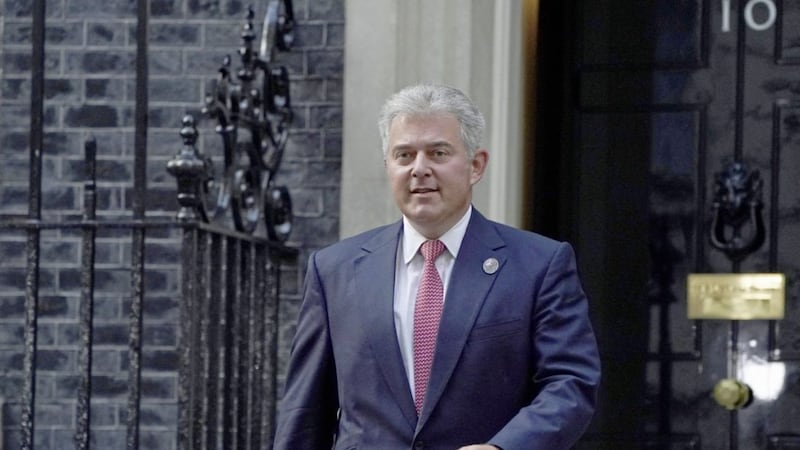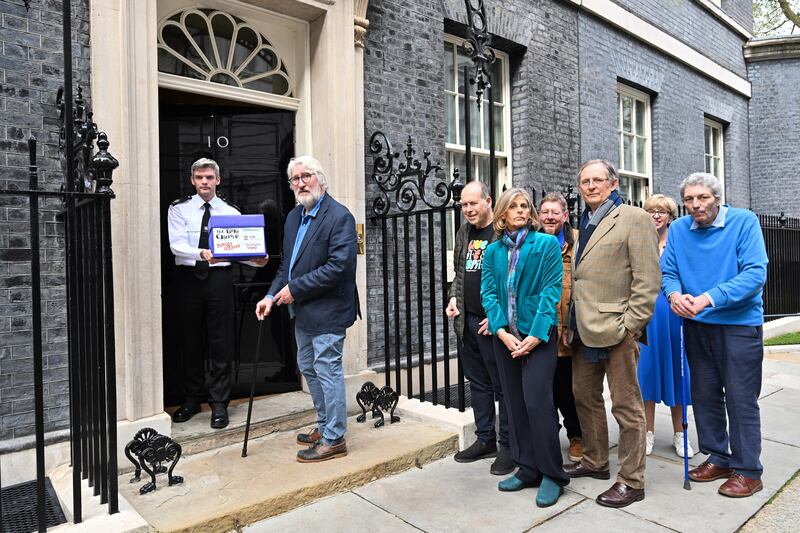A commissioner for human rights in Europe has voiced concern over the British government's controversial legacy plans.
In a letter to Secretary of State Brandon Lewis, Council of Europe Commissioner for Human Rights, Dunja Mijatovi? said the proposals may bring the "United Kingdom into conflict with its international obligations".
Earlier this year Mr Lewis revealed that the Westminster government intends to create a statute of limitations and end civil court proceedings and inquests.
Victims and survivors have united with politicians to voice opposition to the plans.
In her letter, Ms Mijatovi? said she was concerned that the British government's command paper "would not bring progress on legacy issues, but would rather represent significant steps backward".
The senior European official urged the British government to rethink its proposals.
"Rather than upending previously agreed approaches, I urge your government to focus on taking concrete action to remove barriers to a human rights compliant implementation of such approaches, with a view to delivering justice across all communities without further delay," she wrote.
In a response sent this week Mr Lewis wrote: "The UK Government is committed to dealing with legacy issues in a way that supports information recovery and reconciliation, complies with international human rights obligations, and responds to the needs of individual victims and survivors, as well as society as a whole."
The written exchange comes as the legacy issue was brought into sharp focus this week when a former RUC officer was referred to the Public Prosecution Service for the murder of the Reavey brothers in south Armagh in January 1976.
John Martin (24), Brian (22) and 17-year-old Anthony Reavey were shot in their Whitecross home by members of the notorious Glenanne Gang, which included members of the RUC, UDR and UVF.
Meanwhile, concerns about legacy were also raised with British Prime Minister Boris Johnson during his visit to the US earlier this week.
Congressman Richard Neal, who chairs Washington's the powerful Ways and Means Committee, last night said he discussed a range of issues including the "UK proposal to revise the Northern Ireland Protocol and how best to address the legacy of the past on the island of Ireland".
"I shared my strong belief that any agreement reached between the UK and the EU on the future of the protocol must not undermine the integrity of the Good Friday Agreement nor threaten the institutions it created," he said.
"Having worked with five British prime ministers throughout the peace process, I reminded Prime Minister Johnson that everyone had to make sacrifices to achieve this historic accord, and that 23 years later it remains a template for successful conflict resolution around the globe."
Meanwhile, the Time for Truth campaign will hold a national day of action against the British government's legacy plans on Saturday.
To date 14 protests had been confirmed on both sides of the border.
Campaign spokesman, Ciarán MacAirt said: “The families of the Time for Truth Campaign are mobilising across the 32 counties of Ireland to tell Boris Johnson and Brandon Lewis that all families have a right to truth and justice."








